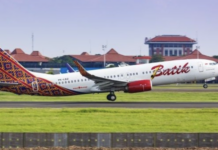KUALA LUMPUR Jan 2 NST news: The cancellation of the Kuala Lumpur-Singapore High-Speed Rail (HSR) has been hailed as a “blessing in disguise” for the country’s tourism sector.
Malaysian Association of Tour and Travel Agents president Datuk Tan Kok Liang said the HSR would have reduced Malaysian airports and cruise ports to mere feeder providers instead of becoming key transport players.
“With tourism at its lowest ebb, we need more direct flight connectivity to our country’s key airports and cruise ports, rather than through Singapore.
“If the high-speed railway comes to fruition, tourists and businessmen will start using Singapore as a travel hub. Consequently, major airlines will stop servicing the Kuala Lumpur International Airport (KLIA).
“The HSR, therefore, actually consolidates Singapore’s position as a major transportation hub at the expense of our country’s tourism revenue,” he said yesterday.
Malaysia Tourism Council president Uzaidi Udanis supported the government’s decision to terminate the HSR agreement and described it as a timely move.
“Although Malaysia has to pay compensation to Singapore, I think it is reasonable if we weigh the project’s long-term consequences for our tourism industry,” he said.
“If the HSR becomes a reality, airlines will prefer to go to Singapore’s Changi Airport rather than to KLIA.
“This will dampen our domestic tourism market, and make our tourism sector highly dependent on Singapore in the long run.”
Uzaidi, who is Malaysian Inbound Tourism Association president, urged the government to empower local airports and develop infrastructure to project Malaysia as a global transport hub.
“The termination of the project provides us with an opportunity to make our tourism industry more self-reliant.
“The government should upgrade the Senai International Airport in Johor Baru to be on a par with Singapore’s Changi Airport and ply express trains to KLIA.
“Our local tourism market is huge and very promising.
“With attention and sufficient resources, Malaysia has the potential to become an international transport hub for the Asean region.”
Meanwhile, the cancellation took some Johor residents by surprise.
Salina Abdul Karim, 45, said she was shocked and disappointed to learn about the cancellation.
The food entrepreneur said she hoped that certain parts of the project would resume after the economy had recovered.
“Many of my relatives and friends who are residing and working in Singapore had bought houses here when they learned about the HSR project.
“Now that the project is cancelled, I am sure that they will have to face a different kind of economic burden from the purchased properties,” she said yesterday.
She said the project was meant to stimulate growth with projected economic spillover in the area through enhanced connectivity with Singapore.
At the same time, she said the rail link could help reduce traffic congestion along the Second Link.
“The news is not easy for people to accept, especially those who commute daily between the two countries, because they will have to continue to endure the traffic congestion in the Second Link,” she said.
Oil and gas employee Zulkifli Leman, 36, described the decision to terminate the project as a disappointment.
“As someone who lives in Johor, I am disappointed. I was really looking forward to an upgrade in the transportation system that links the two countries.
“I still believe that the HSR project will benefit the people and the economy in the long term. The high-speed train was our hope for a modern and efficient mode of transportation.”
Zulkifli said: “Other countries have embraced this and we could have had ours with the HSR project.”



















